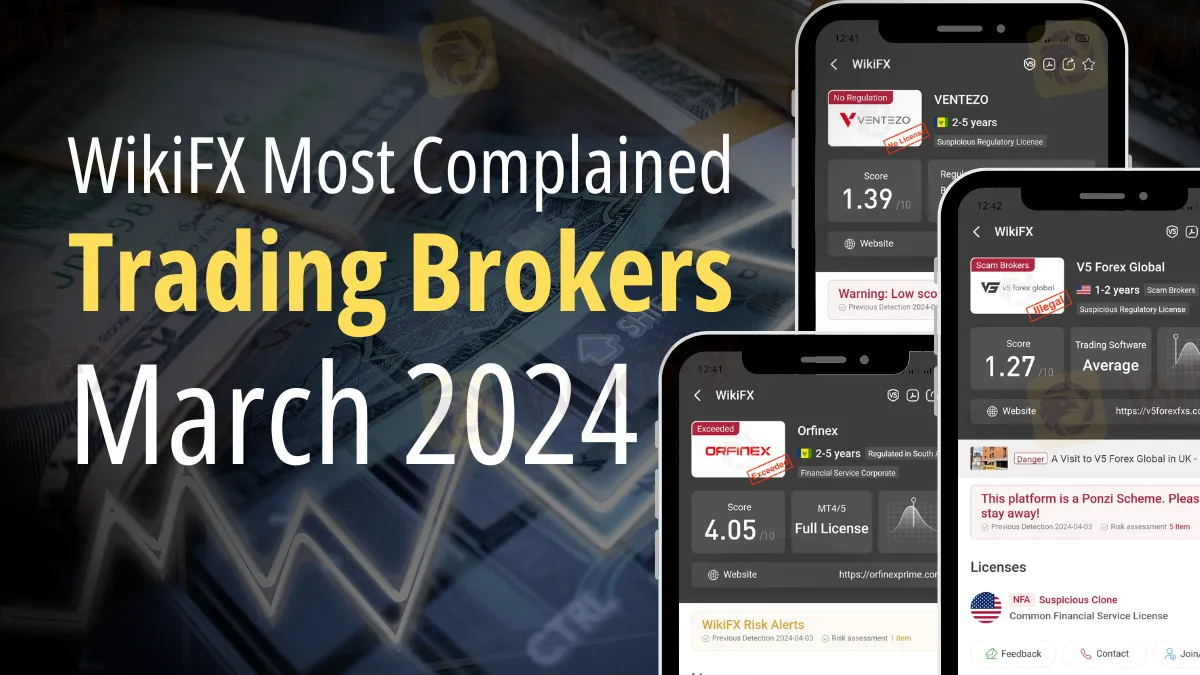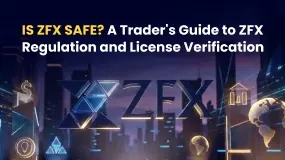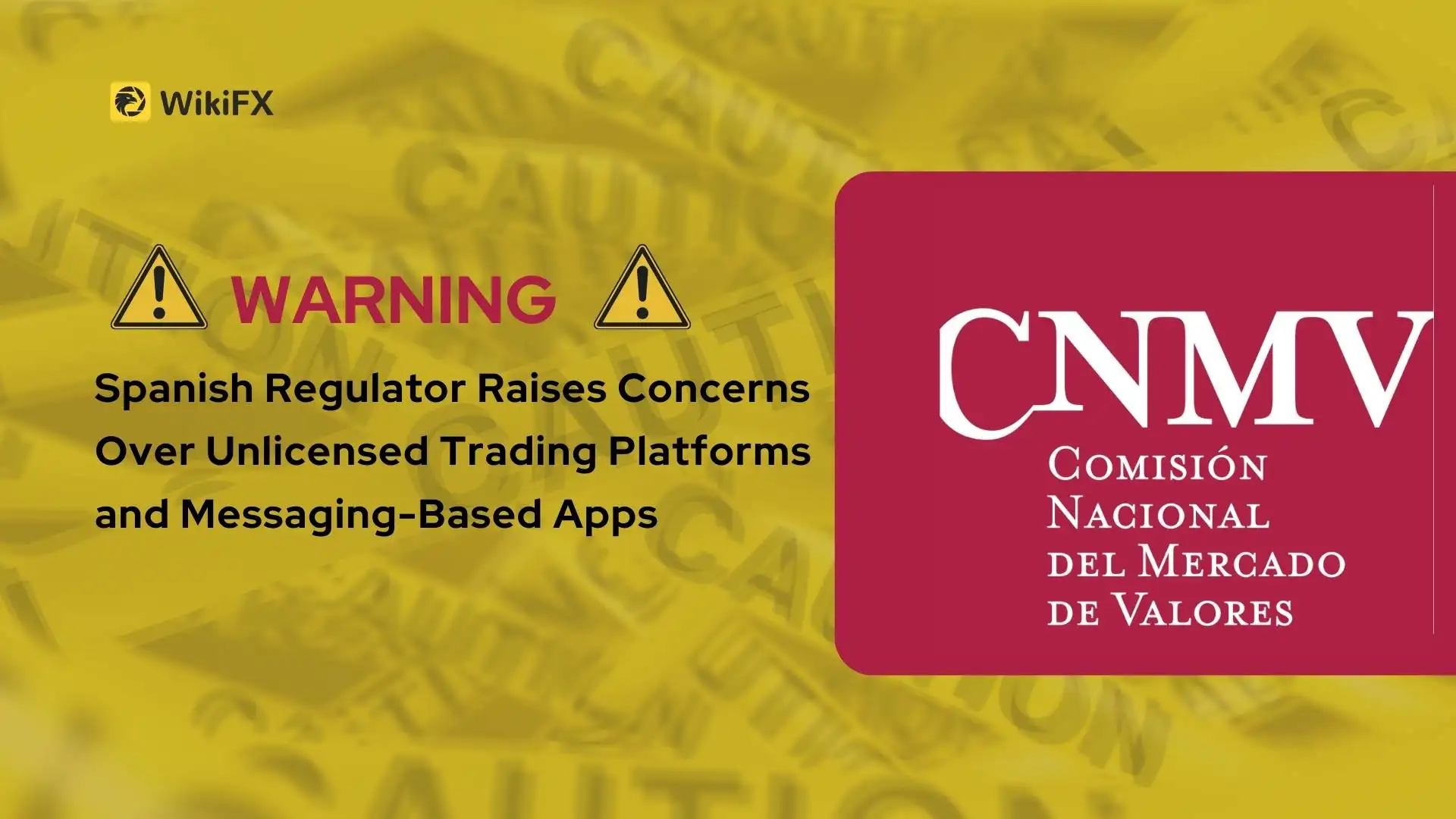Abstract:Learn about the most complained-about online trading brokers in March 2024 through WikiFX reports, underscoring the critical need for choosing regulated and reliable investment platforms.

After taking into consideration the fact that trading online is a serious industry, it is of the utmost importance to choose a broker who can be trustworthy. Unfortunately, not everything was peachy. Some business owners fell into a con. In March 2024, the brokers that gathered the most complaints, according to WikiFX exposure reports, a portal that exposes forex fraud, are listed below.
V5 Forex Global: 1 Reported Complaint
A distressed Filipino trader spoke up about their terrible experience with V5 Forex Global, stating the company was a fraud that drained their funds. Because of an unforeseen automated deal closure on May 23, 2023, they lost all the money in their account. The trader tried to reach out to V5 Forex's support personnel many times, but their requests for explanations and compensation went unmet. This case shows that the broker isn't trustworthy and doesn't care about its customers, which is a major red flag.

Orfinex: 1 Reported Complaint
Another Filipino trader who complained to Orfinex highlighted the disturbing lack of attention to customer concerns, particularly about the Know Your Customer (KYC) procedure. This trader's claims that Orfinex was involved in a fraud scheme show how careless the company is with its customers' money and data.

VENTEZO: 2 Reported Complaints
Case 1: Turkey
An ordeal that a Turkish trader had to go through with Ventezo Limited was the denial of a withdrawal request for $8,618. Nothing had changed despite my repeated questions and cries for help; Ventezo's answer had been mediocre. There are valid concerns about Ventezo's dedication to its customers and its reliability in handling this matter.

Case 2: Philippines
Even worse is an incident involving the national manager of Ventezo in the Philippines, who accessed funds improperly and engaged in illicit activity. The complaint and their brother-in-law were both affected by the illicit transaction, which was a betrayal of confidence and an indication of significant security holes inside Ventezo. After failing to resolve the issue through direct communication with the company's CEO, victims endured financial losses and lost faith in the broker.

Brokers Information
The lack of regulation of these brokers is behind many of these accusations. Unlicensed businesses are not regulated like licensed brokers, raising the risk of fraud.
In March 2024, victim testimonies made the frightening realities of internet trading with unlicensed brokers clear to the general public. In the ever-growing world of foreign currency, it is essential to be informed and carefully consider all aspects. Traders who want to make it through this maze should put their money on trustworthy platforms, have helpful customer service, and, most importantly, follow all the rules.














